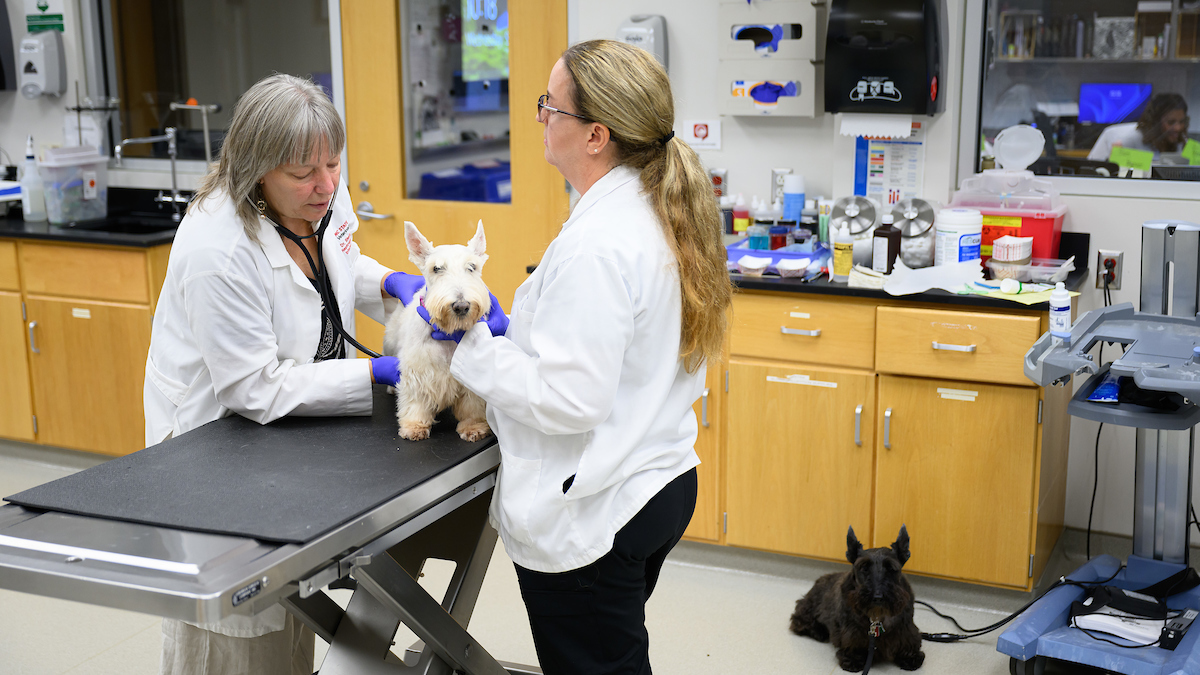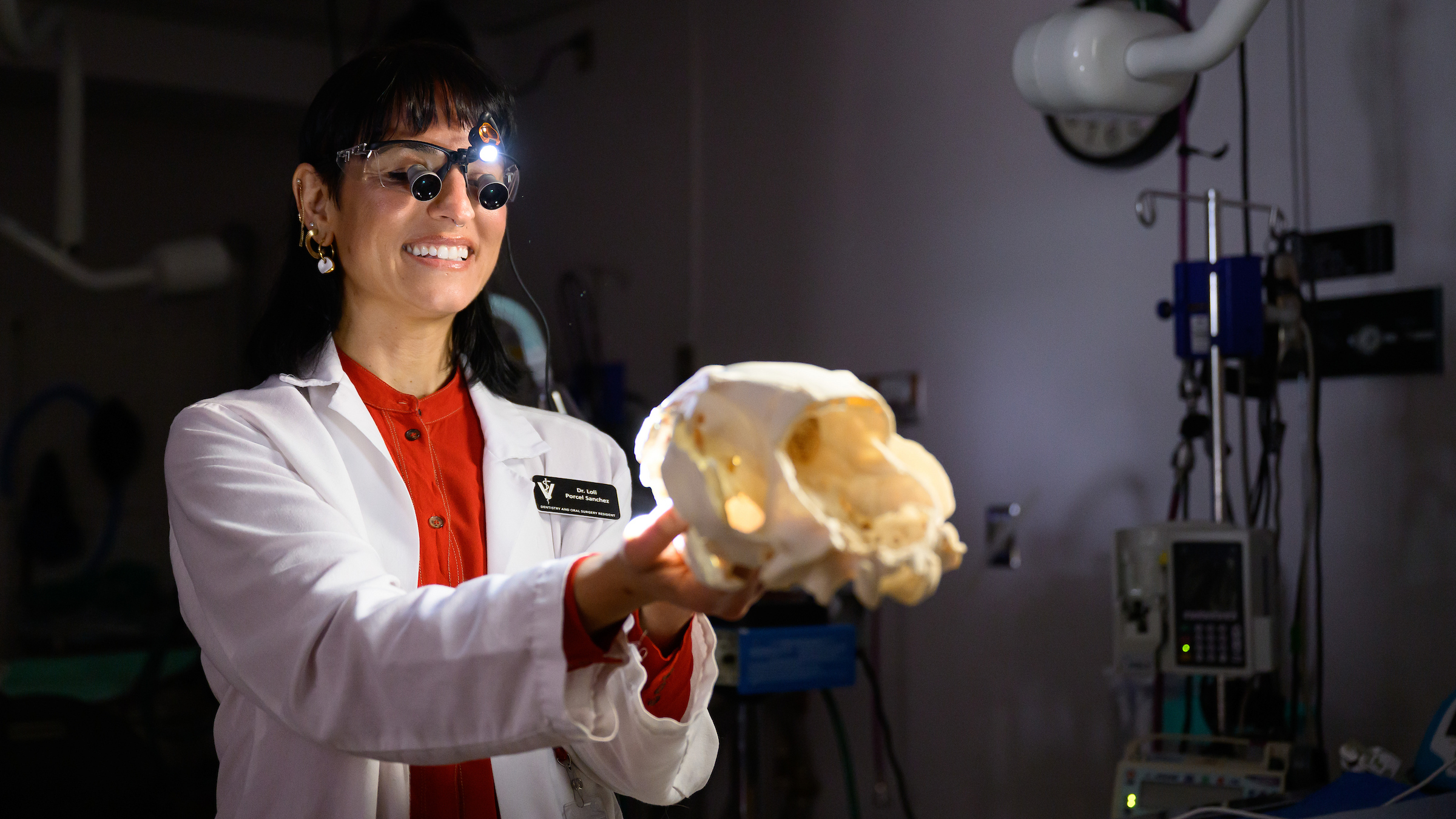Cancer Fund Helps Bento the Cat Pack in More Time with Family
Life-changing funding from Petco Love and the Blue Buffalo Pet Cancer Treatment Fund helped Bento survive a rare cancer and veterinarians learn more about his unusual condition.
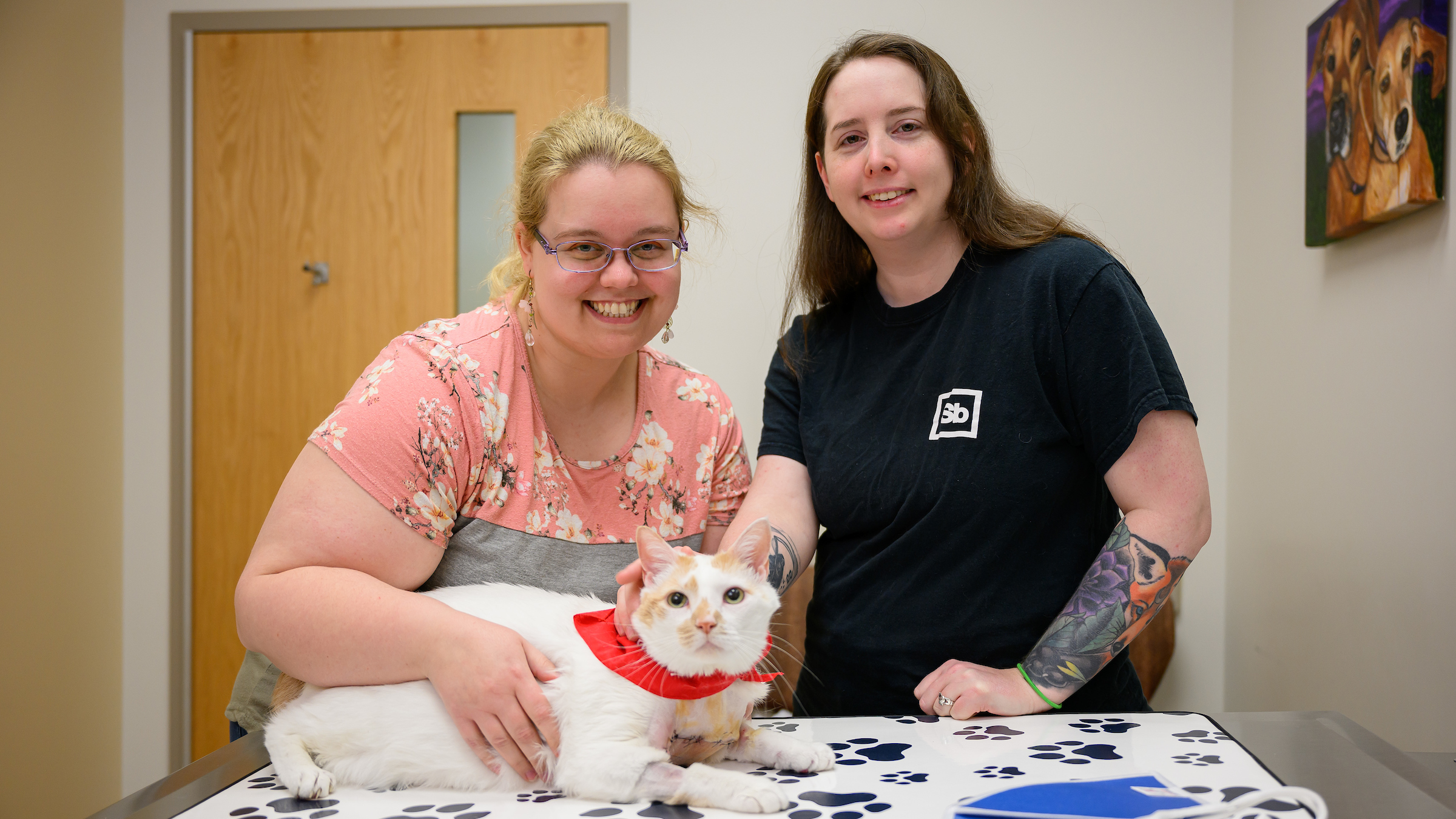
From the moment Bento poked his face through his cage at the SPCA to get closer to them, Kelly Gordon and Jamie Caknipe knew he was their cat.
Bento is the first kitty they adopted after moving in together, and nine years and two more cats later, he has a special place in the household. So when 10-year-old Bento developed a rare, cancerous tumor this year, the diagnosis left Gordon and Caknipe reeling.
“The day of the surgery, when we dropped him off, we went to take a lunch break and I was just crying over my Taco Bell,” Gordon says. “I was just so scared for him.”
The cost of the surgeries to remove the malignant mesenchymoma tumor from Bento’s chest and later confirm the cells were gone further stressed the couple.
But thanks to a generous contribution from Petco Love and the Blue Buffalo Pet Cancer Treatment Fund sponsoring Bento’s care at NC State Veterinary Hospital, Gordon and Caknipe were able to focus their energy on Bento’s successful recovery instead of worrying over another bill.
“We sadly don’t make that much money, and it was like hit after hit after each appointment trying to pay it all off,” Gordon says. “We’re lucky that we had some pet insurance before this happened, but the Petco funding helped tremendously. It’s not nearly as bad as it would have been, and we’re really grateful that they chose to help us.”
Bento — named after the Japanese lunchbox because of the squarish, compact way he sits — had been acting mopey and lethargic in January when his owners found what felt like a small, hard knot on his chest.
Bento went to his local veterinarian in Clarksville, Virginia, when the mass started growing.
After surgery to remove the tumor, Bento was diagnosed with a rare type of sarcoma called a malignant mesenchymoma and subsequently referred to the NC State Veterinary Hospital for follow-up.
Sarcoma cancers develop in bone and connective tissues, but their tumors involve a single type of tissue. Malignant mesenchymomas, however, are uncommon and involve at least two different types of connective tissue in the same growth.
Bento’s tumor showed cancer in his cartilage and fat cells, says former medical oncology resident Rachael Camiener.
“Everything about this is rare,” says Camiener, who was the first NC State veterinarian to see Bento. “We don’t have a ton of info on this condition in any species, and to the best of my knowledge, I don’t think there are even published reports of it in cats.”
Bento’s NC State oncologists determined he needed revision surgery to ensure his tumor excision left no cancer cells behind. They planned to carefully remove additional tissue around his surgical scar, which Camiener says was in an area without much excess tissue to begin with, and submit it for analysis.
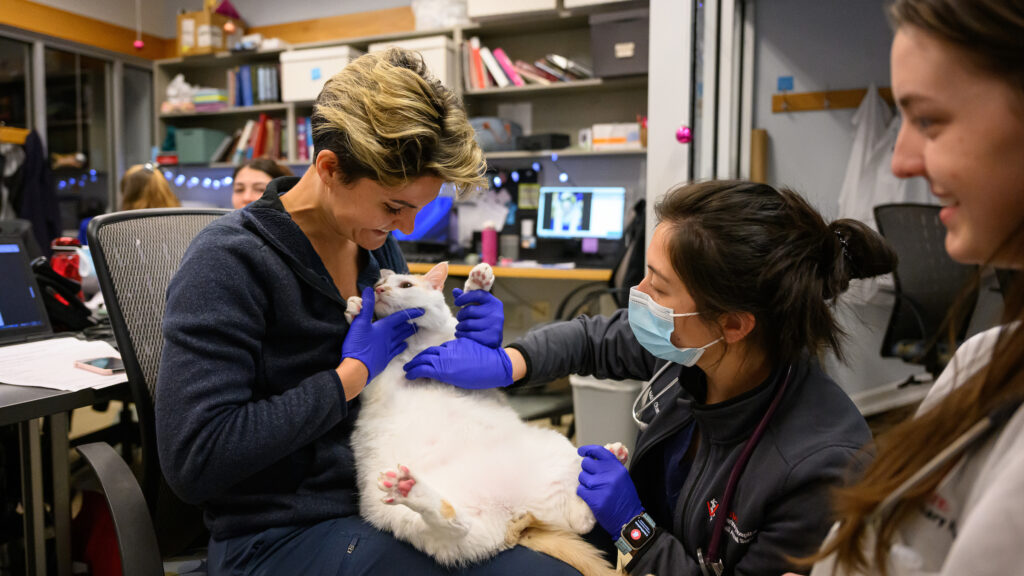
When Gordon and Caknipe raised concerns about the procedure’s costs, Camiener helped connect them to the cancer care funding.
She says the contribution not only helped Bento and his family, but it also gave NC State’s veterinarians the opportunity to learn more about his unusual condition and gain knowledge that will help future pets and vets fight the same type of cancer.
“Petco helps us better serve those patients,” Camiener says. “I’m feeling so grateful that in Bento’s case, we went from a situation where the owners had to pick which tests made the most sense while considering finances to being able to proceed with what I think was the most important part of his treatment plan.”
Bolstered by the Cancer Treatment Fund’s assistance, Bento had surgery at the NC State Veterinary Hospital on April 11. Faculty Dr. Marine Traverson and former small animal surgery resident Dr. Aidan Chambers performed the procedure.
“I couldn’t have asked for better surgeons and vets taking care of Bento,” Caknipe says. “They listened to us through the process and tried to help us save money as best as we could while also giving Bento the best care that they could. They told us everything that would happen so that we didn’t feel lost. It was very informative, very comfortable. I very much felt that they cared.”
Bento recovered quickly and was discharged the next day, a little balder and with a small divot in his chest but happy to go home.
“He kind of looked like a raw chicken from how shaved he was,” Gordon says. “He had little ‘bracelets’ on his arms where his fur was just gone. He looked rough for a little bit, but he did really well.”
Bento’s hair and energy soon returned. Within days, his family received a new reason to celebrate: Bento was in the clear.
Tests on his excised tissue showed no cancerous cells. Bento will return to NC State Veterinary Hospital later this year to make sure his cancer has not recurred, but so far all signs are encouraging.
Gordon and Caknipe are grateful that clinicians worked with them to find a treatment plan for Bento that considered their distance from NC State. They live about 70 minutes from the hospital and “Benny” gets anxious during car rides, Caknipe says.
Bento’s recovery has been so smooth that they have turned their attention to a new, less pressing health issue — his weight.
“He’s been running, but he’s still fat,” Caknipe says, laughing. “We need to work on his diet. I think he’s gradually getting a little smaller, but he’s still a big boy.”
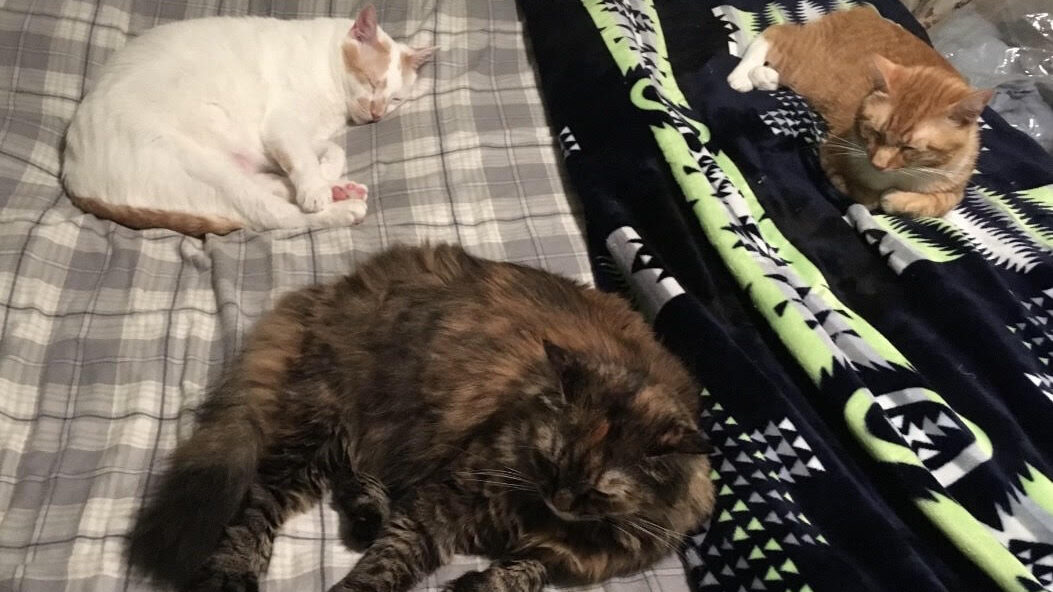
- Categories:

